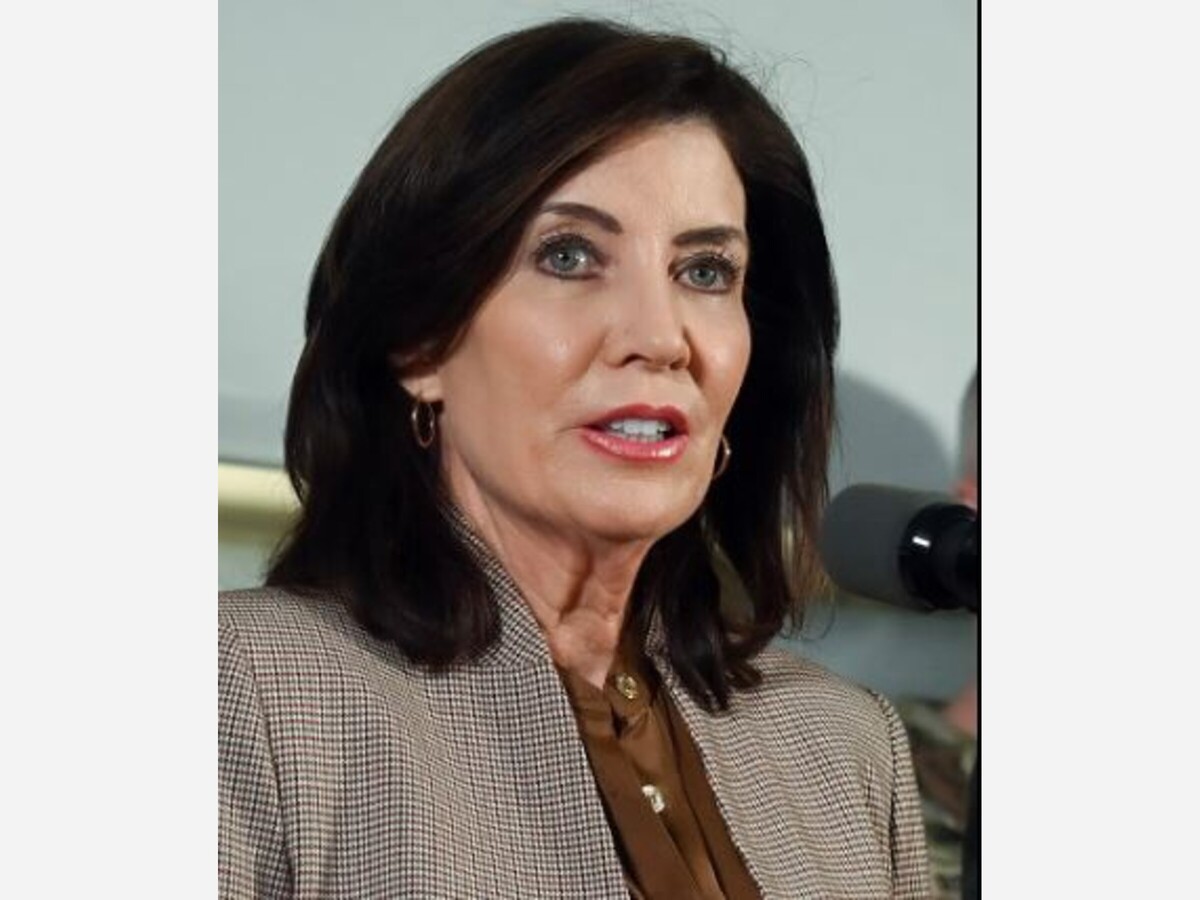Image

Above, New York Governor Kathy Hochul.
by Bruce Mohl, CommonWealth Beacon
July 25, 2024
THE STATE OF NEW YORK is recalibrating its climate change efforts, a move that could be a harbinger of what’s to come in Massachusetts.
In 2019, New York set mandates calling for 70 percent of the state’s electricity to come from renewable sources by 2030 and net zero emissions by 2040. New York lawmakers also approved the creation of a congestion pricing plan for New York City that would assess a toll of as much as $15 on vehicles entering Manhattan south of 60th Street.
The climate change initiatives were some of the most aggressive in the nation, but state leaders of late are starting to have second thoughts.
In early June, just weeks before the New York City congestion pricing plan was scheduled to take effect, Gov. Kathy Hochul put the initiative on an indefinite hold. She said she listened to a rising chorus of opposition and worried about the impact of congestion pricing on the recovery of post-Covid New York City.
Earlier this month, an audit by the New York state comptroller indicated the state was lagging in meeting its 2030 renewable energy target. The audit criticized state agencies for failing to fully account for the increased need for clean electricity to power transportation and other sectors even as the pursuit of more clean energy – specifically offshore wind – has hit big bumps in the road amid changing economic conditions. Between 2005 and April 2023, the report said, 12 percent of large-scale renewable projects were canceled.
The report also faulted state officials for not leveling with the public about what the pursuit of clean energy will cost. “The costs of transitioning to renewable energy are not known, nor have they been reasonably estimated,” the report said.
The emerging consensus in New York is that the 2030 goal will not be met until at least 2033.
“We’re going to get to our goals, but if we miss them by a couple of years, which is probably what will happen, the goals are still worthy,” Hochul said.
When she was campaigning for the job of governor of Massachusetts, Maura Healey called for a power grid operating with 100 percent clean electricity by 2030 and a state public transportation system running entirely on clean electricity by 2040.
Since taking office, Healey has put those campaign pledges in the rearview mirror and shifted her focus to emission limits set under state law, which are slightly less ambitious than those in New York but facing many of the same challenges, particularly the termination of several offshore wind contracts. There has been no estimate of the cost of meeting the state’s climate targets and no independent audits of the effort.
In December 2023, the Healey administration issued its own climate report card, which noted that data on greenhouse gas emissions – the yardstick by which climate progress is measured – lags two to three years behind.
The report said cleaning the power sector is the linchpin of all other greenhouse gas reduction strategies because, without far more clean energy, the transition to electric vehicles and electrified heating and cooling systems will not yield the necessary reductions in greenhouse gasses.
“While Massachusetts is on track to meet our power sector sublimit for 2025, we will face significant challenges deploying clean energy at the scale and pace necessary to meet our power sector sublimits for 2030 and beyond,” the report said.
A spokesperson for the executive office of energy and environmental affairs said the Healey administration is committed to meeting the state’s climate goals and being transparent about how it will get the job done.
“We are working to ramp up clean energy generation from solar, wind, and storage, including through our efforts to accelerate siting and permitting of clean energy, the pending offshore wind procurement, reforms to our solar incentives program, commitments to load reduction through energy efficiency, and other initiatives to deliver renewable energy to our residents,” the spokesperson said in a statement.
Healey appointed a task force earlier this year to come up with a new way of financing transportation in Massachusetts. Everything was on the table initially, but after Transportation Secretary Monica Tibbits-Nutt talked up some out-of-the-box ideas, including new border tolls, Healey stepped in, declared border tolls a nonstarter, and suggested her focus was on making the state more competitive.
In tone, she sounded a lot like Hochul, her counterpart in New York.
This article first appeared on CommonWealth Beacon and is republished here under a Creative Commons license.
